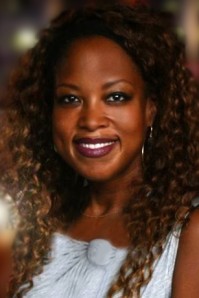Nice Above Fold - Page 370
Study of engaging digital stories helps stations' newsrooms set priorities
A new vocabulary is emerging in public radio newsrooms to help journalists communicate and make decisions about online coverage that attracts and builds digital audiences. Developed through the Local Stories Project, an NPR Digital Services initiative that began as a geotargeting experiment on Facebook, the vocabulary includes phrases like “topical buzzer” — a story that provides a unique take on a subject that everyone is talking about — or “curiosity stimulator,” for a piece with a science or technology angle. The concepts are explained in this blog post, “9 Types of Local Stories that Cause Engagement.” As newsrooms around the country adjust to the demands of producing distinctive coverage within their local markets, reporters increasingly are required to serve two news platforms, each with a different audience, without spinning their wheels."Evolution and revolution" coming as ATSC readies new broadcast standard
Five years after pubcasters switched off the last of their analog TV transmitters and advanced into an all-digital world, planning is underway for the next generation of digital TV. The ATSC 3.0 standard has been years in the making, and years of work and many questions remain before pubcasters are ready to put it on the air. ATSC is the Advanced Television Standards Committee, an international nonprofit comprising broadcasters, regulators, consumer electronics manufacturers, broadcast equipment companies and other experts. It developed the ATSC 1.0 standard that was adopted for broadcast digital TV in the early 2000s and is now charged with replacing that standard to keep up with rapid advances in the technologies used in broadcast TV.Auction delay allows time to think hard about selling spectrum
Selling or keeping spectrum is perhaps the most consequential decision that the current generation of public television station executives and their boards will ever make about the future of public media, not just in their communities but the nation as well. The FCC chairman’s postponement of the spectrum auction until at least 2016 is an opportunity for greater scrutiny of that weighty decision. Pitches from speculators and their FCC allies have focused on the one-time financial windfall to local licensees from selling noncommercial spectrum. However, balanced deliberation requires examining some key issues. Here’s my own short list: Know when to hold ’em: Next-generation broadcasting technology will open up important new revenue streams for public and commercial stations.
Remembering Tom Magliozzi's 'bright light'
Tom Magliozzi, co-host of public radio’s wildly popular Car Talk, died of complications from Alzheimer’s disease Nov. 3. He was 77. Magliozzi was born in East Cambridge, Mass., in 1937 and co-hosted Car Talk with his brother, Ray, from the show’s inception as a local broadcast of WBUR in Boston through a 25-year run as one of the top draws for public radio listeners on weekends. The show ended original production in 2012 due to Magliozzi’s declining health, yet it continues to attract large audiences for local stations while airing in repeats. According to NPR, for the spring 2014 ratings Car Talk attracted an average quarter-hour audience of 1.7 million, making it the second-highest-rated show using that metric, behind Wait Wait .Incoming Republican chairs include 'powerful friends' of public broadcasting, says APTS president
SAN DIEGO — Patrick Butler, public television’s chief advocate on Capitol Hill, wants to reassure broadcasters who are nervous about the incoming Republican majority, particularly on the powerful Senate side. In a speech at the annual American Public Television Fall Marketplace, Butler said that he “detected some anxiety in the public television industry that we will be going to hell in a handbasket now that Republicans control the entire Congress” after this month’s midterm elections. “I’ve come to San Diego to tell you that it ain’t necessarily so.” Butler, president of the Association of Public Television Stations, reminded the crowd that GOP support for pubcasting goes back even to Arizona Sen.PBS to test whether core series can bring in pledge dollars
PBS has set the lineup for an upcoming fundraising test that will use a full week’s schedule of first-run National Program Service shows. Seventeen stations will take part in the experiment, running Nov. 28 through Dec. 5. PBS is trying to determine whether using core series, rather than pledge specials that veer from the regular lineup, will lead to a more stable member and donor base and perhaps even prompt more major gifts. The participating stations run the gamut, said Betsey Gerdeman, PBS’s s.v.p., development. They include stations in small and large markets, state networks, university licensees and major producing stations, all across the country.
Fundraising groups focused on public TV shows expand to bring stations under tent
Four specialized charities cultivating big donations to benefit some of PBS’s most popular programs are gaining traction in the crowded and competitive world of public TV fundraising.Wednesday roundup: Zoboomafoo lemur dies; that's Mailchimp
Plus: NPR's ombud weighs in on a story from El Salvador, and IowaWatch weighs the fate of a radio show.Public Radio Satellite System adopts new standard for audio levels
The Public Radio Satellite System adopted standards Thursday intended to normalize audio levels among the programs it distributes to stations. PRSS adopted an audio measurement standard using a number to denote audio levels, instead of the longtime industry standard of peak meters. Decibel measurements provided by meters are largely subjective. The loudness unit adopted by PRSS is used by organizations around the world. Because PBS also uses it, joint licensees can now rely on a single standard, which will simplify operations, according to the PRSS working group that approved the change. NPR, American Public Media and PRSS staffers began working on developing the standards in the spring after engineers discussed the problem at a conference in April.APT offers MST3K episodes to public TV stations
SAN DIEGO — Mystery Science Theater 3000 could be headed for public television. It’s one of some 75 shows that public TV programmers are previewing at distributor American Public Television’s annual Fall Marketplace, running here through Thursday. In the cult comedy series, janitor Joel Robinson (played by series creator Joel Hodgson) is forced to watch grade-Z movies on a remote space station as part of a psychological experiment devised by an evil scientist. Robinson creates robot pals Tom Servo, Crow T. Robot and Gypsy to watch with him, and they pass the time by making snarky yet erudite comments throughout each film.Monday roundup: APT kicks off; WTVI boosts revenue
Plus: Jian Ghomeshi and the CBC's bigger problems; and Melody Kramer's proposal for convening communities.Masterpiece expands hours with "gushing pipeline" of classics, mysteries
Masterpiece will concentrate on bolstering its popular Classics and Mystery! strands with an boost in support from its main sponsor, Viking River Cruises. Executive Producer Rebecca Eaton is also working on developing a major new series. The WGBH icon program’s footprint will expand by 50 percent — around 20 hours — with additional episodes spread throughout the season. Extra hours will be scheduled Sundays at 8 p.m. or 10 p.m. Eastern time, before or after Masterpiece’s longtime 9 p.m. time slot. All will be designated common carriage. Kicking off the bigger schedule is the six-part Grantchester, at 10 p.m.Radio Diaries takes gold at Third Coast, and other awards in public media
An update on the life of Teenage Diaries subject Melissa Rodriguez took the top prize at the biennial festival.Friday roundup: WYPR union bid fails; stations plan to add news, cut classical
Plus: A blogger considers a classical app, and the Onion tells the truth about Ira Glass.PBS chooses Nelson as public affairs v.p., Tri States Radio hires reporters, and other comings and goings in public media
Marie Nelson will collaborate with executive producers of icon series and independent producers to develop content and ways to engage audiences across programs and platforms.
Featured Jobs




